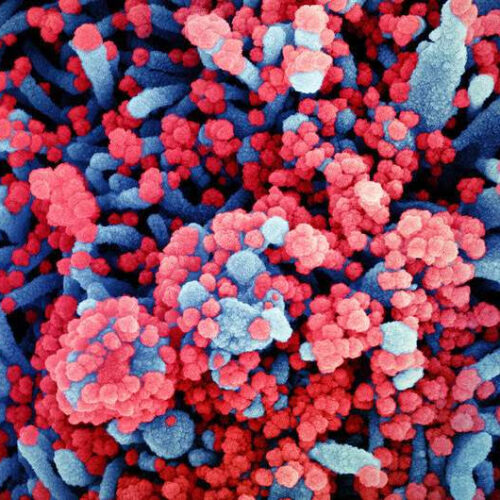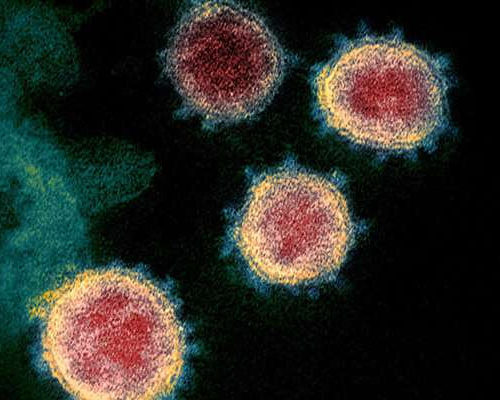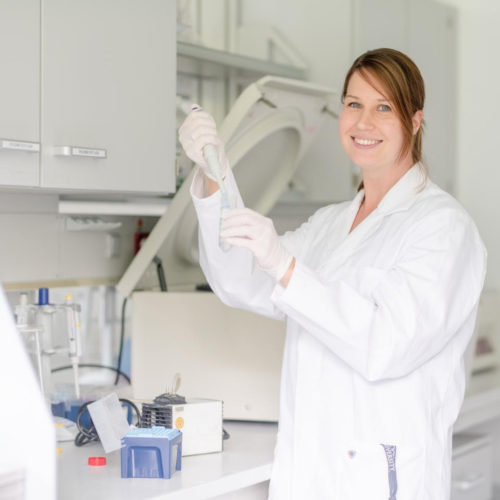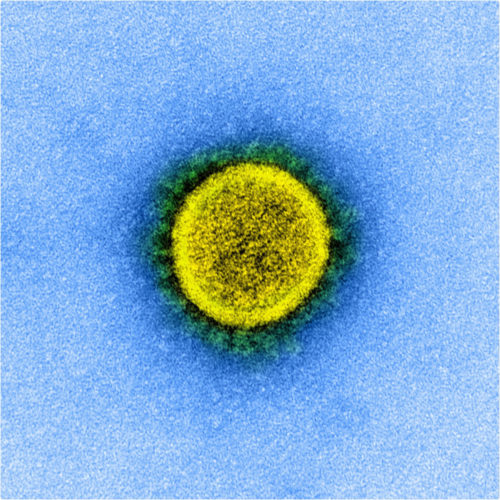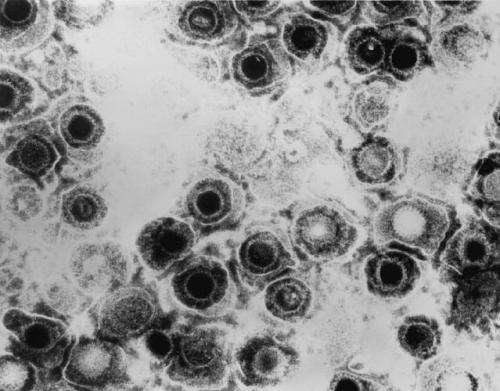NEW YORK (Reuters Health) —Psoriasis patients who are new users of infliximab and adalimumab appear to be at a greater risk of serious infection than those beginning therapy with etanercept, according to French researchers. In an online paper in JAMA Dermatology, Dr. Emilie Sbidian of Hôpital Henri Mondor, Creteil, and colleagues note that biologics, as...
Tag: <span>infection</span>
Viruses leave traces for long after infection
Viruses do not always kill the cells they infect. Researchers at the University of Basel have discovered in experiments with mice that cells have the power to self-heal and eliminate viruses. However, these cells undergo long-term changes. The findings may provide a hint as to why cured hepatitis C patients are more susceptible to liver cancer for...
Antibodies to SARS-CoV-2 remain stable, or even increase, seven months after infection
by Barcelona Institute for Global Health Colorized scanning electron micrograph of a cell (blue) heavily infected with SARS-CoV-2 virus particles (red), isolated from a patient sample. Image captured at the NIAID Integrated Research Facility (IRF) in Fort Detrick, Maryland. Credit: NIAID The levels of IgG antibodies against SARS-CoV-2 Spike protein remain stable, or even increase, seven months after...
NEW DRUG TARGET REVEALS POTENTIAL TO STOP C. DIFF INFECTION
C. difficile infection (CDI) is the most frequent cause of healthcare-acquired gastrointestinal infections and death in developed countries. Published in Nature Communications, the study reveals the first 3D structure of the C. difficile toxin B (TcdB) in complex with a chondroitin sulfate proteoglycan 4 (CSPG4), a human receptor. “TcdB is one of two homologous C....
Phages can anticipate bacteria’s location and destroy them before they cause an infection
BAYLOR COLLEGE OF MEDICINE Researchers at Baylor College of Medicine and other institutions have identified a novel strategy that can eliminate bacteria in a specific location before they cause an infection. The strategy uses a phage, a virus that infects and destroys bacteria, that can specifically locate in the same place the bacteria live in the...
‘Hotspots’ of a SARS-CoV-2 infection in the human body
by German Center for Neurodegenerative Diseases An infection with the coronavirus SARS-CoV-2 can affect multiple organs. With this in mind, researchers of the German Center for Neurodegenerative Diseases (DZNE) and Cornell University in the US have investigated cellular factors that could be significant for an infection. To this end, they analyzed the activity of 28...
Immunoprotein impairs Sars-Cov-2
An endogenous protein prevents the virus from fusing with host cells RUHR-UNIVERSITY BOCHUM STEPHANIE PFÄNDER IS LOOKING FOR GENES THAT INHIBIT CORONA VIRUSES. view more CREDIT: RUB, MARQUARD A protein produced by the human immune system can strongly inhibit corona viruses, including Sars-Cov-2, the pathogen causing Covid-19. An international team from Germany, Switzerland and the...
People with SARS-CoV-2 most infectious in days 0-5, no evidence of transmission after day 9
By Sally Robertson, B.Sc. A study conducted by researchers in the UK and Italy suggests that individuals with severe acute respiratory syndrome coronavirus 2 (SARS-CoV-2) are probably at their most infectious during the first week of illness. The systematic review and meta-analysis of data available on the viral dynamics of SARS-CoV-2 found that although viral...
Antiviral method against herpes paves the way for combatting incurable viral infections
by Lund University Researchers at Lund University in Sweden have discovered a new method to treat human herpes viruses. The new broad-spectrum method targets physical properties in the genome of the virus rather than viral proteins, which have previously been targeted. The treatment consists of new molecules that penetrate the protein shell of the virus...
Five things you need to know about: mRNA vaccines
The race for a vaccine against the novel coronavirus, or SARS-CoV-2, is on, with 54 different vaccines under development, two of which are already being tested in humans, according to the World Health Organization. And among the different candidates is a new player on the scene – mRNA vaccines. One mRNA vaccine developed by US...

